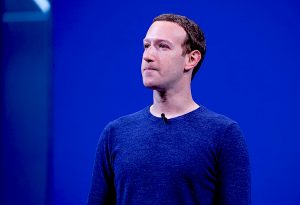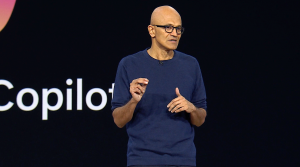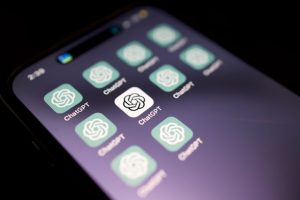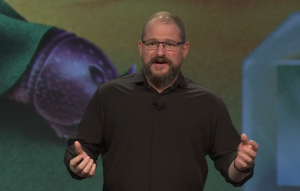Clyburn accuses ISPs of arguing in favor of reclassification
[courtesy of George Ou]
The amount of blatant misinformation used in the reclassification debate over Internet regulation never ceases to amaze me. I’ve spent much time debunking the reclassification movement, and I’ve debunked the hysteria over the DC Circuit supposedly “stripping” the FCC of its Title I Ancillary authority. But now we have FCC Commissioner Mignon Clyburn accusing AT&T, Comcast, and Verizon of propagating this hysteria when it was actually perpetrated by the Open Internet Coalition and Free Press. Making this even more ironic is the fact that Clyburn made these claims in a speech at a Free Press event.![]()
Clyburn claimed that AT&T, Comcast, and Verizon made the misleading claim that the DC Circuit stripped the FCC of its Title I ancillary authority when in fact it hadn’t. The problem for Clyburn is that those ISPs actually made the opposite and correct claim that the FCC still had Title I ancillary authority and that they needed to make a better case before the court.
Free Press and all the other groups like Public Knowledge and the Open Internet Coalition in favor of Title II reclassification were actually the ones that claimed that the DC Circuit court had weakened the FCC’s Title I ancillary authority to the point that it was no longer usable. This was the entire rationale behind Title II reclassification, yet Clyburn inexplicably accused the ISPs of making this argument even though the ISPs oppose reclassification.
The real culprits
Prepared remarks from Free Press in regard to the DC Circuit decision made by Derek Turner stated:
“In other words, Powell and Martin’s legal interpretations “broke” the law, making it unworkable, except through their ancillary authority theory, which is now defunct because of the Comcast rulilng.”
So here we have Free Press arguing that the FCC lost its ancillary authority.
The Open Internet Coalition (OIC) made a huge media blitz in the middle of April decrying the loss of Title I ancillary authority and why it was so crucial for the FCC to reclassify Internet services under Title II. The impression that the OIC gave to the media left journalists believing and reporting to their readers that the FCC had been stripped of any Title I ancillary authority. Betanews’ Scott M. Fulton reported:
“Last week’s staggering defeat to Comcast in a landmark DC Circuit Court decision left the US Federal Communications Commission stripped of any “ancillary authority” it thought it had to regulate the practices of Internet service providers.”
Skype’s Sr. Director of regulatory affairs Christopher Libertelli even made some disturbingly inaccurate assertions about the DC Circuit Court FCC decision. Libertelli stated:
“And I think it’s interesting, because after the Comcast case, government has no policy in this space. It lacks subject matter jurisdiction, as the FCC lacks subject matter jurisdiction to enforce its Internet policy statement.”
This is completely wrong because “Subject matter jurisdiction” was never even contested by the plaintiff (Comcast) or defendant (FCC) before the DC Circuit Court. Comcast never questioned whether the FCC has subject matter jurisdiction and the DC Circuit Court accepted the FCC’s subject matter jurisdiction which means the FCC met the first of two legal requirement to prove ancillary jurisdiction.
So I don’t know who wrote Commissioner Clyborn’s speech, but she needs to have a nice talk with that person so that she doesn’t have these embarrassing mix ups in talking points.
Where is the responsible journalism?
The problem now is that we have an FCC Commissioner accusing three major ISPs of dishonest when it was Free Press and Open Internet Coalition spreading the misinformation, but Cecilia Kang of the Washington Post reports it as ISP dishonesty. Yet it seems that Kang has a short memory since she previously reported that the courts had weakened FCC authority based on her one-sided interview of “public interest groups” like Media Access Project. Kang wrote:
Andrew Schwartzman, policy director for Media Access Project, said the ruling “represents a severe restriction on the FCC’s powers.” Public interest groups have urged the agency to reclassify broadband services so that they are more concretely under the agency’s authority.
So if Cecilia Kang played a role in spreading the very claim that Commissioner Clyburn calls dishonest, how is it that she can now report that it was AT&T, Comcast, and Verizon spreading this disinformation?
[Cross-posted from Digital Society]
George Ou was a Senior Analyst at ITIF.org before joining Digital Society. Before that, he was Technical Director and Editor at Large at ZDNet.com and wrote one of their most popular blogs “Real World IT“.
A message from John Furrier, co-founder of SiliconANGLE:
Your vote of support is important to us and it helps us keep the content FREE.
One click below supports our mission to provide free, deep, and relevant content.
Join our community on YouTube
Join the community that includes more than 15,000 #CubeAlumni experts, including Amazon.com CEO Andy Jassy, Dell Technologies founder and CEO Michael Dell, Intel CEO Pat Gelsinger, and many more luminaries and experts.
THANK YOU













